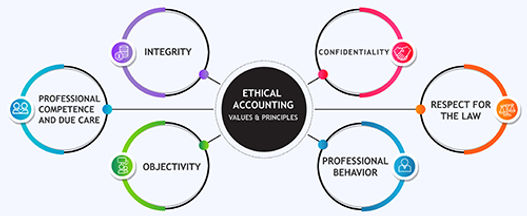Community News & Forum
The organization's accounting functions under the restrictions of regulatory and morality
Regulatory Requirements in Accounting
Accounting is heavily regulated to maintain financial transparency and standardization. Key elements of regulatory requirements in accounting include:
-
Accounting Laws and Regulations: Governments enact accounting laws and regulations to govern financial reporting. These laws vary by country but often include requirements for financial statement preparation, auditing, and disclosure. For example, in the United States, the Sarbanes-Oxley Act introduced stringent regulations for corporate financial reporting to protect investors and maintain the integrity of financial markets.
-
Accounting Standards: Accounting standards, such as Generally Accepted Accounting Principles (GAAP) and International Financial Reporting Standards (IFRS), provide guidelines for how financial transactions are recorded, reported, and presented. Compliance with these standards ensures consistency in financial reporting, making it easier for stakeholders to understand and compare financial information.

Ethical Requirements for Accountants
Ethical requirements are fundamental to the accounting profession, as accountants handle sensitive financial information and play a crucial role in maintaining trust. Key ethical considerations for accountants include:
-
Integrity: Accountants must be honest and forthright in their dealings, ensuring that financial information is not misrepresented or manipulated. This includes reporting all financial data accurately and without bias.
-
Objectivity: Accountants must remain impartial and avoid conflicts of interest that could compromise their professional judgment. They should provide an unbiased view of financial data.
-
Confidentiality: Protecting the confidentiality of financial information is essential. Accountants should not disclose sensitive information to unauthorized individuals or parties.
-
Professional Competence: Accountants are expected to maintain a high level of professional competence by staying current with accounting standards and best practices. They should also continue their education and training to improve their skills.
-
Professional Behavior: Accountants are representatives of the accounting profession and should act professionally in all interactions. This includes treating clients, colleagues, and the public with respect and dignity.
